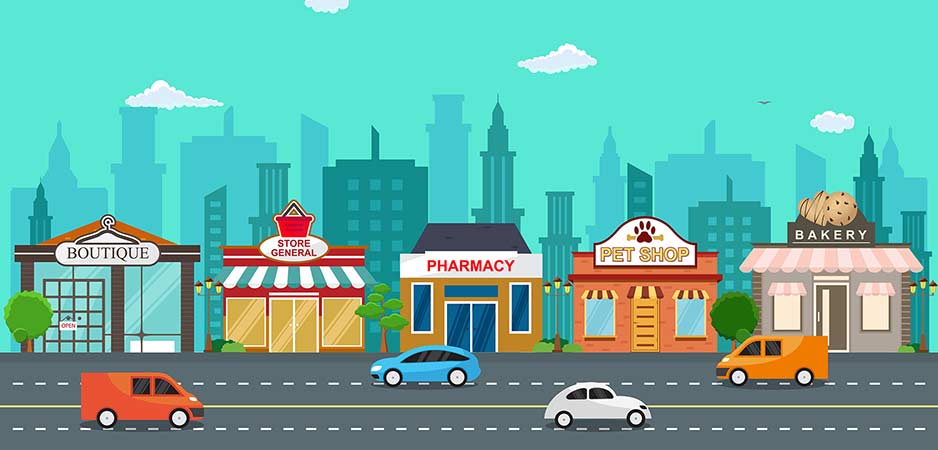The topic of nearly every conversation right now is centered around COVID-19, and rightfully so. The recently announced coronavirus pandemic is already changing life as we know it, and for many people, life will take an even stranger turn over the next few weeks, months and maybe even years. Things will not be the same, particularly for those who dared to venture out of the comfort of their 9-to-5 jobs and start a new business.
Small businesses, including owners and employees, are already faced with difficult, immediate choices: to stay open and take risks with the health of their staff and customers or close without support. These organizations already operate on a thin profit margin, and most new businesses aren’t even profitable yet. The choice is a difficult one, and even more demanding decisions will be on their way.
While so much remains up in the air regarding the global economy, one thing is certain: What happens next will likely be different than what came before. Here’s what we know so far about how coronavirus is impacting small businesses.
Crucial Benefits
If this global health crisis has taught the world one thing, it’s that public health is only as sound as the health of the person with the least means. As our populations become more diverse, it will become even more important to find ways to serve their health-care needs. Although Asia and Europe will both need to tackle the crisis, the United States may be hardest hit, as health care is expensive and largely employer-based. Many people seek out and remain in jobs for the benefits packages.
It’s likely that the pandemic will underscore the importance of a comprehensive and useful benefits package, even among small businesses. Companies like Google are competitive employers not only because of their standing in the global market but because of the incredible benefits packages they offer, which include health insurance, sick leave, paid time off and help for general health and wellness. To compete, small or medium businesses will need to offer the same — or at least their best effort.
The role of health benefits will be more important than ever for workers coming back after businesses can once again roll up the shutters. It’s unclear whether the responsibility will fall directly in the lap of small businesses or the government. One thing’s for sure: The American worker will never aim to be left so vulnerable again.
While much is made of the impact on small, local businesses, it’s likely that those with distributed supply chains could be even worse hit. If a small business sources products from a larger supplier, then there’s a good chance those supplies are coming from China or another affected area that has shut down production to prevent the spread of the virus. Larger retailers like Macy’s say that they’re expecting a slowdown in products from China, particularly as the Chinese market gets back on its feet and production starts running again.
At the same time, new disruptions to the supply chain could occur. For example, American transport workers could be badly affected by the virus, as could those who work in customs. There could be shortages of workers in warehouses and distribution centers, which could slow down travel time by days or even weeks. Even Amazon will be impacted. Its workers have told the press that the e-commerce giant isn’t doing what’s needed to protect them. Because even though washing hands and using sanitizer are crucial parts of stopping the spread of disease, packing thousands of people into a confined space means those interventions can only offer so much.
Consumer Uncertainty
A big media focus has thus far been on bars, restaurants, event venues and businesses that rely on large gatherings of people as the core of their business models. The impact on these businesses is playing out before our very eyes, but there’s another industry likely to be devastated.
The plunging stock market is another issue, because while only 55% of Americans report owning stock, they know what market issues mean for their company’s leadership. People are worried about their future. They’re worried about jobs, making mortgage payments and the uncertainty of what comes next. Any of those big projects that they might have been actively planning for will now likely go on hold. In other words, everyone in the home improvement industry may need to stand down. This can impact small appliance stores, builders and contractors and all of the people whose small businesses or franchises participate in the space, from painting, tiling or flooring to plumbing and electricals.
The impact of coronavirus on small businesses will be huge. It will change the way we move, shop and do business, and it could even reverse the trend of globalization. What will happen next? Unfortunately for businesses, it’s still a matter of waiting and seeing.
The views expressed in this article are the author’s own and do not necessarily reflect Fair Observer’s editorial policy.
Support Fair Observer
We rely on your support for our independence, diversity and quality.
For more than 10 years, Fair Observer has been free, fair and independent. No billionaire owns us, no advertisers control us. We are a reader-supported nonprofit. Unlike many other publications, we keep our content free for readers regardless of where they live or whether they can afford to pay. We have no paywalls and no ads.
In the post-truth era of fake news, echo chambers and filter bubbles, we publish a plurality of perspectives from around the world. Anyone can publish with us, but everyone goes through a rigorous editorial process. So, you get fact-checked, well-reasoned content instead of noise.
We publish 2,500+ voices from 90+ countries. We also conduct education and training programs
on subjects ranging from digital media and journalism to writing and critical thinking. This
doesn’t come cheap. Servers, editors, trainers and web developers cost
money.
Please consider supporting us on a regular basis as a recurring donor or a
sustaining member.
Will you support FO’s journalism?
We rely on your support for our independence, diversity and quality.
































